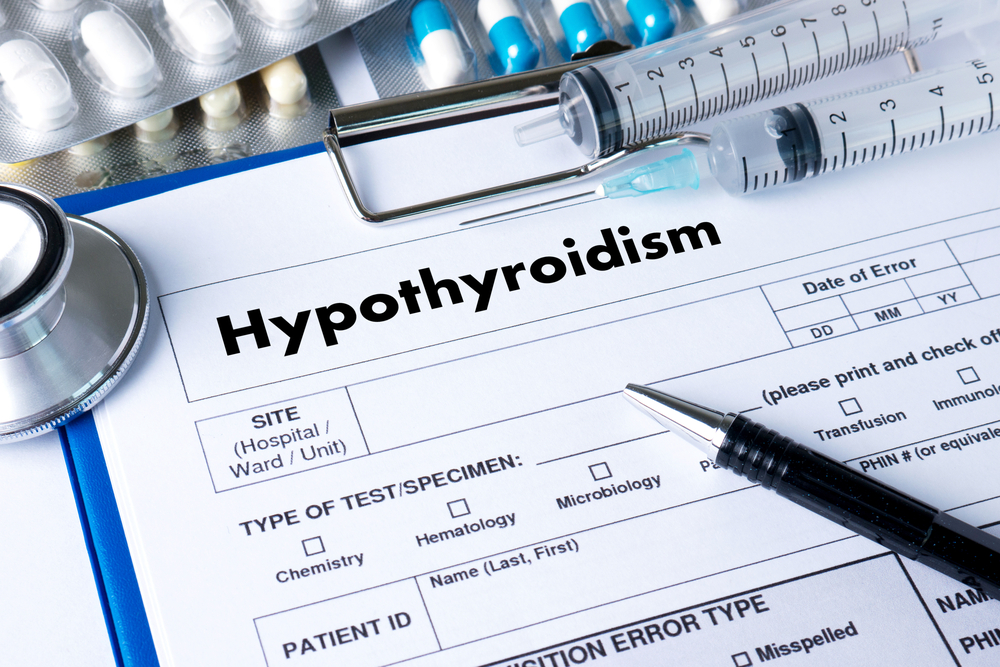Constipation is one of the most annoying signs of hypothyroidism. Constipation and pooping are the taboo subjects, and people feel embarrassed to discuss these subjects in polite society. Pooping seems like the easiest thing in the world to do, but when your body’s chemicals are disturbed by hypothyroidism (a condition that develops when the thyroid gland becomes underactive and produces an insufficient amount of thyroid hormone), pooping becomes a big task and becomes unpredictable. Hypothyroidism constipation can become a real pain for many people.
It can cause difficulty in passing stools, excessive straining or a complaint of infrequent bowel movements. It is important to have bowel movements every day, ideally between three times a day and three times a week. You need to poop daily to eliminate toxins that can harm your body and cause more problems. This article will help you learn some tips to manage constipation and some alternatives to help you get back on track to a happier and healthier life.
Thyroid and Hypothyroidism
The thyroid gland is in the front of the neck below the voice box. It produces thyroid hormones, secreted into the bloodstream and then transferred to every tissue in the body. Thyroid hormones are helpful for the body to utilize energy and keep the body organs such as the heart, brain, muscles, and other organs working properly. These hormones are useful in controlling how every human body tissue uses energy. These are required to help each cell in your body’s organ to function properly.
Hypothyroidism can also be called a thyroid disease. An individual with hypothyroidism has an underactive thyroid, meaning the thyroid does not make enough thyroid hormone to keep the body functioning correctly. Low levels of thyroid hormones cause the body’s function to slow down, leading to many thyroid problem symptoms such as loss of energy, fatigue, dry skin, and memory issues.

Common symptoms
There are a variety of symptoms of thyroid issues you could experience. Unfortunately, thyroid disease symptoms are very similar to the signs of other medical conditions and stages of life. This can make it tough to know if you have hypothyroidism symptoms, any other signs of a thyroid problem, or something else entirely. For the most part, symptoms of thyroid issues can be divided into two categories: Hyperthyroidism (those related to having excessive thyroid hormone) and hypothyroidism (those related to having too little thyroid hormone).
Symptoms of Hyperthyroidism include losing weight, anxiety, trouble sleeping, enlarged thyroid gland, muscle weakness, irregular menstrual periods, feeling sensitive to heat, vision problems, tremors, etc.
Hypothyroidism symptoms can include fatigue, forgetfulness, weight gain, and heavy menstrual periods in women. Hypothyroidism symptoms in men include a puffy face, constipation, weight gain, hoarse voice, and dry and coarse hair.
Constipation is one of the low thyroid symptoms that is often neglected or misinterpreted.
The link between hypothyroidism and constipation
Experts believe there is an association between hypothyroidism and constipation. Since the thyroid hormone is responsible for producing energy and regulating metabolism for the entire body, many of the body’s functions slow down when the thyroid level is low. Hypothyroidism causes the process of digestion to slow down and is one of the major reasons for causing constipation. Furthermore, reduced thyroid function can affect digestive juice excretion. Hypothyroid patients are more likely to develop certain types of gastrointestinal problems. The liver is the most affected body organ affected by hypothyroidism, but it is still unknown how it translates stress on the liver into constipation.

Natural Remedies for Constipation Relief
-
- Reduce the sugar intake – If your diet includes simple carbohydrates, grains, and processed food, this means your diet is loaded with sugar. Eating more than 25 grams of sugar daily can elevate your blood sugar level. Too low or too high blood glucose levels may weaken and inflame the gut lining and cause hormonal imbalance. It alters your overall body’s metabolism.
- Drink more water – Be sure to drink adequate water to hydrate your body. Aim to drink at least 6 to 8 glasses of water daily. It is one of the best and most natural constipation remedies.
- Do more Exercise – Exercise at least thrice a week. Increasing physical activity should be a part of constipation treatment.
- Increase fibre intake – Eating more fibre is a permanent constipation cure. Women should eat 28 grams of fibre daily, while men must consume 30 grams to address constipation. Eat more fibre-rich foods such as berries, whole grains, beans, broccoli, kale, etc. One can also consult a dietician to develop a meal plan that best manages constipation.
- Consider a laxative –You can get over-the-counter oral laxatives for constipation relief. Always consider talking to a healthcare specialist about what would be best in your situation.
Hypothyroidism treatment usually includes taking the thyroid hormone medicine Levothyroxine every day. Levothyroxine is considered the best medicine for hypothyroidism. It is also effective in Hashimoto’s disease treatment. Hashimoto’s is an autoimmune disorder that can cause hypothyroidism. It is taken orally to return hormone levels to a healthy range, eliminating signs and symptoms of hypothyroidism.
Also Read: Tips for Maintaining a Healthy Body Weight During Hypothyroidism



